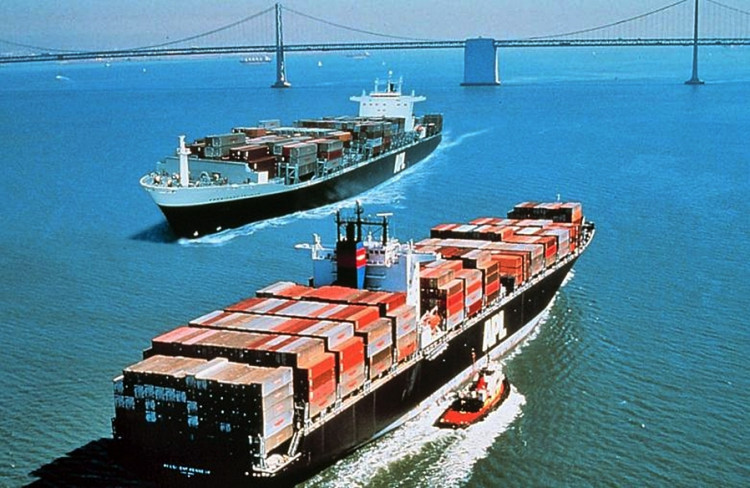The U.S. economy grew by an impressive 3.5% in the third quarter -- but could have grown much larger were it not for the harmful effects of Trump's trade war. Without Trump's trade war, U.S. GDP growth would have risen by a massive 5.3%.
Financial analysts said this missed opportunity is the strongest evidence yet Trump has shot himself in the foot by launching a totally unnecessary trade war against most of the developed world and China. The federal government's third-quarter report on the economy grimly illustrated the major distortions because of Trump's tariffs on Chinese goods and metals.
Foreign trade slowed U.S. economic growth, dragging GDP growth down by 1.78 points, the worst number in 33 years. Experts said there's growing anecdotal evidence Trump's trade war is causing trouble for the U.S. economy and businesses. And this problem is getting worse.
The U.S. trade deficit grew rapidly and removed 1.8 percentage points from GDP growth in the quarter. If Trump is trying to boost American competitiveness with its policy actions, it is clearly failing, according to the Economic Policy Institute.
Experts said the new report on third quarter GDP is the best hard evidence yet Trump's unwarranted tariffs are causing major disruptions and damage to the U.S. economy.
On the plus side, U.S. GDP increased at an annualized rate of 3.5% in Q3. The contribution of net exports of goods and services, however, was a depressing -1.78 percentage points. Net exports of goods and services are the measure of how much trade adds or subtracts to GDP growth.
The -1.78 percentage points are the largest negative contribution to GDP growth for trade in 33 years. The last time an event of this negative magnitude occurred was iin the second quarter of 1985 when trade subtracted 1.91 points.
Experts noted that if trade were a net neutral, meaning it neither added to nor subtracted from GDP growth, third quarter GDP growth would have been a fantastic 5.3%.
Trump's trade war also had deleterious effects on other components of the GDP. Non-residential fixed investment (or spending on large-ticket items like equipment) added a mere 0.12 points to GDP growth, the lowest in seven quarters. Overall fixed investment was also minimal, causing a 0.04-point drag, the worst in 10 quarters.
In addition, uncertainty over U.S. trade policy also contributed to minimal growth in capital expenditures by businesses. U.S. firms have repeatedly warned this uncertainty and the certainty tariffs will inevitably boost costs elsewhere will trigger much lower capex spending.
The government's GDP report follows a number of surveys and anecdotal evidence from companies suggesting Trump's tariffs are causing far too much trouble.
The U.S. Federal Reserve's latest Beige Book makes for depressing reading. It was loaded with statements from business leaders and bankers about rising costs from Trump's tariffs. Many major corporations estimate the tariffs will add tens of millions of dollars to their costs in the short-term.






